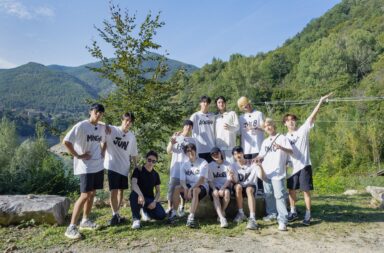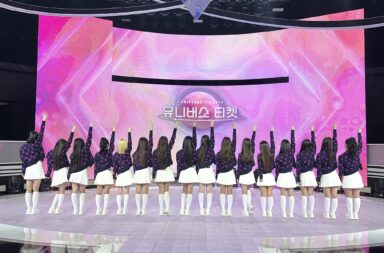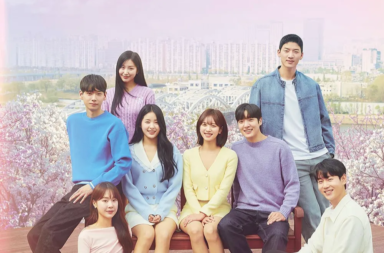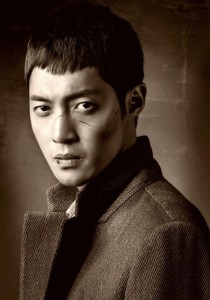 It’s true that Goddess Jeon Ji-hyun of the fountain of everlasting youth and the ridiculously good-looking Kim Soo-hyun are ruling the small screen in Korea now in the SBS drama You From Another Star, with episode 18 reaching the series’ all-time high of 27.4% last week. However, a substantial portion (11.7% as of Episode 9) of South Koreans with telly sets are also tuning into KBS’s rival production Age of Feeling/Inspiring Generation, starring none other than our dear Ji-hoo sunbae, Kim Hyun-joong.
It’s true that Goddess Jeon Ji-hyun of the fountain of everlasting youth and the ridiculously good-looking Kim Soo-hyun are ruling the small screen in Korea now in the SBS drama You From Another Star, with episode 18 reaching the series’ all-time high of 27.4% last week. However, a substantial portion (11.7% as of Episode 9) of South Koreans with telly sets are also tuning into KBS’s rival production Age of Feeling/Inspiring Generation, starring none other than our dear Ji-hoo sunbae, Kim Hyun-joong.
The drama is set in Korea under the Japanese Occupation, circa the late 1930s, when nationalist movements were reaching fever pitch after decades of heavy-handed military rule. This provides a suitably convoluted universe in which our hero is fittingly placed to uppercut (quite literally, if you’re watching the show) all the baddies into submission.
There’s a distinctly nationalist thread running through the show as well, as characters of Japanese ethnicity are villainised, overtly depicted as cruel and inhumane and given dialogue that has them condemning “Joseon people” as lowly, unintelligent or otherwise inferior. Characters of Korean ethnicity are, correspondingly, depicted as being brave, courageous and fighting for freedom from the oppression of their Japanese rulers. If they seek to assimilate into the Japanese identity, the show stops at nothing to beat it into your head that they’re choosing things all wrong.
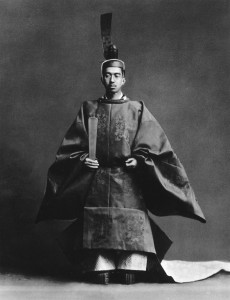 It’s interesting to note that the writers of mainstream K-Dramas have, by and large, shunned the period under Japanese occupation as a backdrop to their narratives. The Japanese Occupation remains a sore point not merely in Korea, but in China and certain Southeast Asian countries as well. This resentment can be attributed to the Japanese government’s subtle maneuverings (textbook revisions, amendments of official records to state that time served for war crimes was in fact years spent in service to the government) that have effectively induced collective national amnesia concerning the wartime violations of the military government.
It’s interesting to note that the writers of mainstream K-Dramas have, by and large, shunned the period under Japanese occupation as a backdrop to their narratives. The Japanese Occupation remains a sore point not merely in Korea, but in China and certain Southeast Asian countries as well. This resentment can be attributed to the Japanese government’s subtle maneuverings (textbook revisions, amendments of official records to state that time served for war crimes was in fact years spent in service to the government) that have effectively induced collective national amnesia concerning the wartime violations of the military government.
This is particularly so in the case of the administration under Emperor Hirohito — which, if you recall, mobilised a terrifyingly effective Japanese army that swept across China and the Pacific on an almost parallel timeline as Nazi Germany’s blitzkrieg forces. Naturally, this has invoked protest from South Korea, whose citizens are today still seeking governmental compensation and direct payments to victims for wartime atrocities such as the use of comfort women. The increasing popular support for the Japanese right wing, which tends to be dismissive of the country’s wartime atrocities, has done little to ease inter-state tensions.
To cut a long story short, there’s a lot of pain and humiliation buried near the surface in South Korea surrounding the Japanese Occupation, perhaps even more than in other Asian countries that also suffered wartime occupation. This festering ulcer of hateful memory is particularly volatile by virtue of its length and indelible legacy in Korean history.
So perhaps it’s understandable that drama producers for broadcast channels – shows created for the entertainment of the masses and intentioned for large-scale popularity – may have previously avoided setting their dramas in a time period that still hits close to home for many Koreans. K-netizens are always at the ready to voice their opinions in the loudest and most colourful ways on microblogging sites like Cyworld, and broadcast channels may have wanted to avoid invoking such reactions from its most immediate audience.
In the Northeast Asian region (broadly encompassing the Korean peninsula, China and Japan), nationalist sentiment often runs high owing to insensitivities from various parties. The aforementioned sentiment often reverberates strongest and loudest in cyberspace. Given that Korean entertainment remains popular in Japan despite this, drama producers may have wanted to avoid this altogether and thus stuck to time periods safely tucked away in the yellowing pages of history, such as the early Joseon Dynasty. These safe creative decisions have ensured the place of kings such as King Sejong the Great (Tree With Deep Roots) and King Jeongjo (Yi San, Painter of the Wind, Sungkyunkwan Scandal) in the popular consciousness.
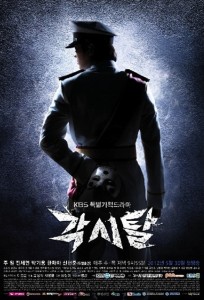 In 2012, however, a masterfully acted, sweepingly epic and – perhaps most importantly – highly popular drama came on the scene and broke away from this norm. The broadcast channel KBS2 aired the drama Gaksital (or Bridal Mask), starring Joo Won, Park Ki-woong and Jin Se-yeon (who, as a point of interest, is also acting in Age of Feeling). The finale of “Gaksital” went out on a high of 27.3% nationwide (according to TNmS Media Korea).
In 2012, however, a masterfully acted, sweepingly epic and – perhaps most importantly – highly popular drama came on the scene and broke away from this norm. The broadcast channel KBS2 aired the drama Gaksital (or Bridal Mask), starring Joo Won, Park Ki-woong and Jin Se-yeon (who, as a point of interest, is also acting in Age of Feeling). The finale of “Gaksital” went out on a high of 27.3% nationwide (according to TNmS Media Korea).
This meant that more than a quarter of the South Korean population saw a stridently nationalistic, distinctly anti-Japanese end to a drama that had consistently portrayed the Japanese as oppressors of the Joseon people, and the heroes as heroic for finding it within themselves to fight this oppression. The show’s male lead, Joo Won, found himself being labelled in the press as a “patriotic actor”, both for giving a sterling performance in the drama and for participating in an episode of 1N2D that filmed on Dokdo (also known as the Liancourt Rocks). Dokdo is a group of islets which is the centre of a sovereignty dispute between Japan and South Korea.
“Gaksital”, along with a powerful confluence of events (South Korean presidential visit to Dokdo, South Korea beating out Japan in the 2012 Olympics for the bronze in soccer) thus ignited a new wave of popular nationalism in South Korea. The media outlets of both nations made provocative references to the other, and the political relations, never warm to begin with, grew frigid. However, one could argue that 2012 was quite a while back – it’s been almost two years since Joo Won galloped across the small screen on a white horse in white robes. What makes it still worthy of discussion now?
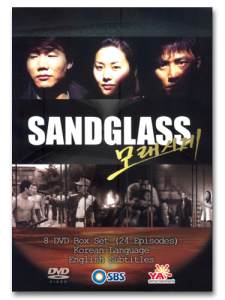 It’s still worth discussing because it was a landmark production in the K-Drama industry as we know it today. “Gaksital” set a new precedent for nationalism in contemporary broadcast channel dramas – it could be portrayed artfully without being overly reminiscent of a citizenship class, and it could garner high ratings. A highly popular, overtly patriotic drama helping to catalyse a high current of nationalism and anti-Japanese sentiment – this demonstrates clearly the power of mass media to stir up nationalism.
It’s still worth discussing because it was a landmark production in the K-Drama industry as we know it today. “Gaksital” set a new precedent for nationalism in contemporary broadcast channel dramas – it could be portrayed artfully without being overly reminiscent of a citizenship class, and it could garner high ratings. A highly popular, overtly patriotic drama helping to catalyse a high current of nationalism and anti-Japanese sentiment – this demonstrates clearly the power of mass media to stir up nationalism.
Mass media is intensely influential, and can be used to great effect towards positive ends, as in the case of seminal drama Sandglass. The SBS drama’s reenactment of the 1980 Gwangju Massacre, interspersed with archival video footage, influenced the prosecution of ex-President Chun Doo-hwan, who was finally jailed for sending the military in to crush the civilian uprising. In this case, mass media was used to realise positive outcomes – a dictator was brought to justice, and South Koreans could finally experience closure regarding the chapter of military authoritarianism and the muzzling of free speech.
In the case of dramas such as Gaksital, and to a lesser extent, Age of Feeling, mass media treads a fine line between positive patriotism and negative jingoism. They walk a tightrope between arousing pride in Korea’s history and culture and awakening an animosity against a close neighbour that is never really too far from the surface. This ill-will, given the current political climate in Northeast Asia, awash as it is in territorial disputes and entrenched in historical animosity, can hardly be afforded.
It can be argued that it takes a well-made drama like “Gaksital” to arouse patriotism as powerfully as the show did in 2012, and that Age of Feeling is hardly popular enough to warrant similar concerns. However, with You From Another Star ending soon, the ratings winner for the Monday-Tuesday primetime slot could easily be the Kim Hyun-joong vehicle – which, if it continues its current narrative, could easily take on an increasingly nationalist and anti-Japanese bent.
It’s unlikely that Kim Hyun-joong himself will suffer much of a career setback if his drama turns off a few Japanese fans – his massive popularity in Southeast Asian countries will have him rolling in the banknotes for quite a few more years yet. Being Yonsama’s protégé will do him more than a few favours in the Japanese market as well, and his Boys Over Flowers popularity is unlikely to stop following him in one way or another for the rest of his entertainment industry career.
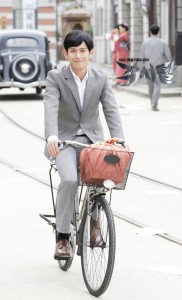 The concern here, therefore, is not regarding the careers of the actors involved in these so-called patriotic dramas, but rather regarding the message it sends to the mass media industry at large. Is it truly acceptable to use mass media as a vehicle for overt nationalism, never mind the political fireworks? When does it go too far? Patriotism, in its most essential form, is hardly a rational sentiment – it is fueled by fired-up emotions of pride, resentment, even hatred. Mass media has a responsibility by virtue of sheer scale of influence to air societal ills that require rectification; it is a medium that promotes international understanding through shared enjoyment of entertainment. If it becomes a vehicle for political malice that masquerades as patriotism, then the industry has gone too far.
The concern here, therefore, is not regarding the careers of the actors involved in these so-called patriotic dramas, but rather regarding the message it sends to the mass media industry at large. Is it truly acceptable to use mass media as a vehicle for overt nationalism, never mind the political fireworks? When does it go too far? Patriotism, in its most essential form, is hardly a rational sentiment – it is fueled by fired-up emotions of pride, resentment, even hatred. Mass media has a responsibility by virtue of sheer scale of influence to air societal ills that require rectification; it is a medium that promotes international understanding through shared enjoyment of entertainment. If it becomes a vehicle for political malice that masquerades as patriotism, then the industry has gone too far.
Even as we consume the output of the prolific K-entertainment industry, we always need to keep in mind the ramifications of this mass media. As consumers, we can hardly interfere in the back-end of K-Drama production, but we have both the right and the responsibility to serve as a system of check and balances to the industry. We should and must respond accordingly when the mass media perpetuates hatred rather than increased tolerance and understanding.
(Aaron Cooley, The Textbook Controversies in Japan: What History is Taught? (University of North Carolina at Chapel Hill, 2003), Amnesty International New Zealand, CBS News, Centre for Research on Globalization, CNN, Dramabeans, Kazuo Yagami, The Role of Emperor Hirohito in The Pacific War 1941-1945: The Views of the Revisionists (Savannah State University, 2012), Stanford Program on International and Cross-Cultural Education, The Straits Times [1][2], TNmS Media Korea, Images via KBS, SBS, The World War 2 Diaries)
